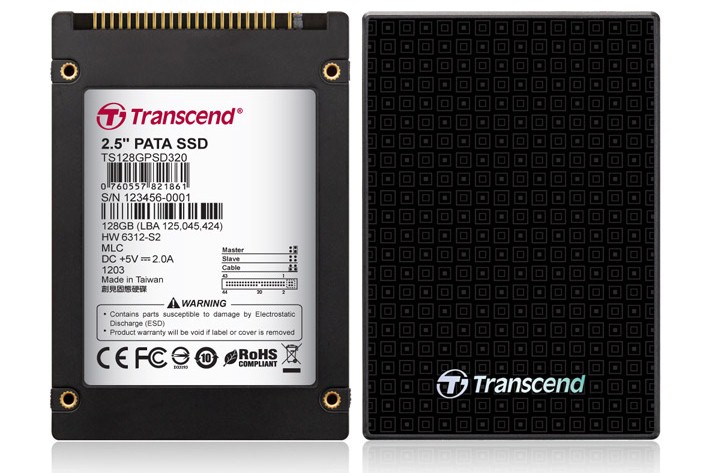Transcend, well known for their storage and multimedia products, has announced the release of their PSD320 PATA SSD.
Based on the old IDE interface, the product will be able to hit read/write speeds of 104MB/s and 93MB/s respectively, and will be available in capacties of 32GB, 64GB and 128 GB.
The drives will come with a three year warranty and should be available very soon. Pricing hasn’t been set yet.
The interesting thing about this announcement is the fact that this is one of the few IDE SSDs that will be available on the market. With many newer motherboards no longer even offering IDE ports, it may appear at first glance that Transcend has become touched in the head. However, this is not necessarily the case, as many consumers like to hang on to their old PCs, which, by our standards, became obsolete the moment a new platform hit the streets. These users probably aren’t doing any heavy duty activities such gaming or rendering, making their antiquated equipment fit for years to come. It is this demographic that transcend is doting on with their latest SSD.
Given the fact that mechanical hard drives long ago saturated the upper limit offered by UDMA 6, what advantage is there to stepping up to an SSD? The main thing the drives have going for them is undoubtedly latency, which is several orders of magnitude lower than an HDD. Again, it all goes back to the target market, as users interested in this product are not likely to be pushing massive amounts of data across the drive, but will almost certainly appreciate the rapid response times when it comes to opening their favorite programs, not to mention, OS usage in general. There’s also the fact that SSDs subsume a significantly longer lifespan than their mechanical counterparts, making these collections of MLC perfect compliments to crotchety old computers which are likely to cling to life for some time to come.
One concerning aspect, though, is garbage collection, which is going to have to be quite effective, especially when one considers that these products won’t likely be used in systems running the latest versions of Windows. Indeed, without the assistance of TRIM, the SSDs are going to have to employ somewhat aggressive algorithms if they hope to keep slow write speeds, and the subsequently bitter consumers, at bay. Transcend could also offer a stand alone TRIM utility, although requiring this market to manually maintain their drive in this manner may not go over too well, especially when it comes to rookies.
With any luck, the PSD320 will allure customers with its siren like attraction of excellent performance combined with a reasonable price. If write speeds can weather the storm of regular use, Transcend may be able to ‘seduce’ a significant number of shoppers, causing them to waiver in their willful intention to hold out with hardware that is “good enough”. I have to say, those who give the SSDs a try will be singing a song of a different tune!
See Press Release On Next Page……….
 The SSD Review The Worlds Dedicated SSD Education and Review Resource |
The SSD Review The Worlds Dedicated SSD Education and Review Resource | 

You forget that this also may benefit manufacturing companies that use CNC machines. I am actually working on a project right now for starting to replace our old hard drives with these SSD’s in the older machines that don’t use SATA. With the vibration and dust associated with these machines, hard drive failure is a big problem.